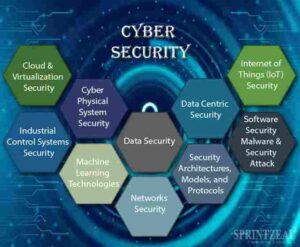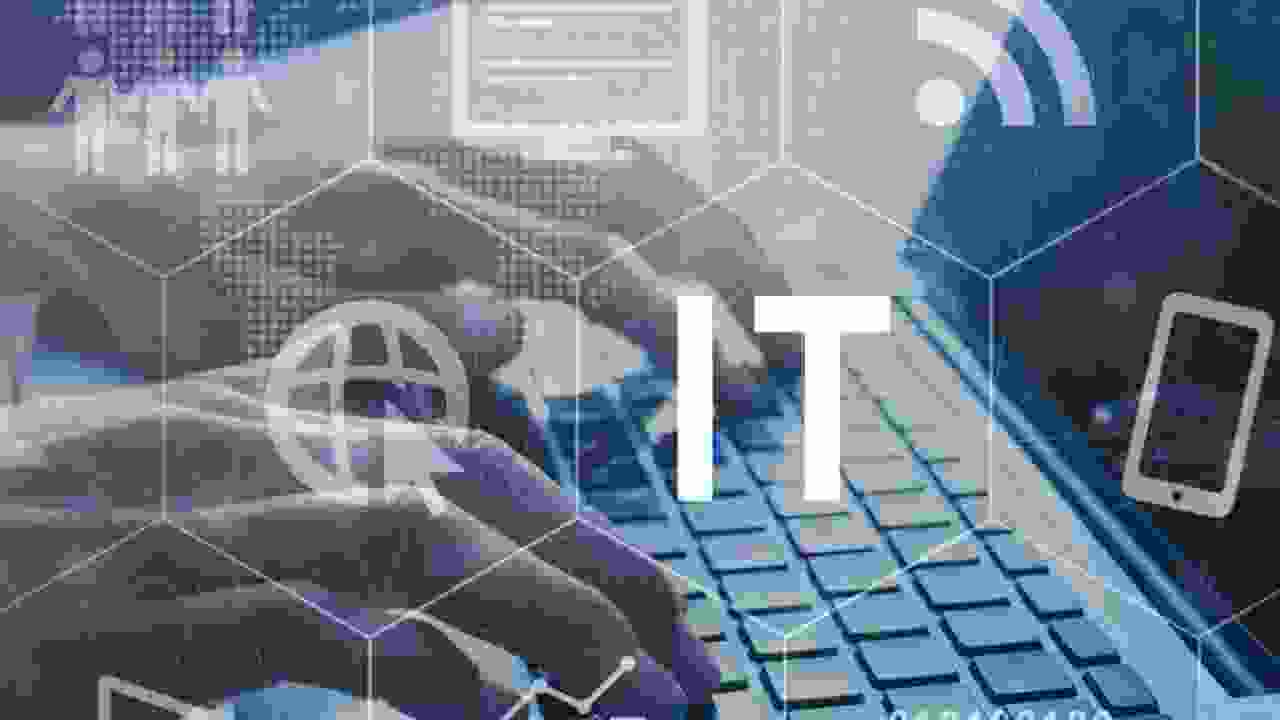Cybersecurity & Data Protection
-
 Introduction to Cybersecurity and Data Protection
Introduction to Cybersecurity and Data Protection - Cybersecurity and data protection are all about keeping our digital information safe from hackers, viruses, and other online threats. As we use computers, smartphones, and the internet every day, we share personal and important data like passwords, photos, and bank details. Cybersecurity helps protect this information so that only the right people can access it. Data protection focuses on how this information is collected, stored, and shared safely. Together, they play a big role in making sure our online world stays secure and private.
-
Importance of Cybersecurity in Today’s Digital World
- In today’s digital world, we rely on the internet for everything—shopping, banking, working, and staying connected. This makes cybersecurity more important than ever. Cybersecurity helps protect our personal information, like passwords and bank details, from being stolen or misused. Without it, hackers could access sensitive data and cause serious problems for people and businesses. As technology grows, so do the risks, which is why strong cybersecurity is key to keeping our digital lives safe and secure.
-
Principles of Data Privacy and Protection
- The principles of data privacy and protection are designed to ensure that personal information is handled with care and respect. These principles include collecting only the data that is needed, being clear about how the data will be used, and keeping it safe from unauthorized access. People should have the right to see, correct, or delete their own data. Organizations must also store data securely and use it only for the purposes agreed upon. Following these principles helps build trust between users and businesses and keeps sensitive information safe in the digital world.
-
Cybersecurity Risk Assessment and Management
- Cybersecurity risk assessment and management is about finding and fixing possible security problems before they cause harm. It starts with checking systems to see where weaknesses might be, like outdated software or weak passwords. Once risks are found, steps are taken to reduce them, such as updating systems, training staff, or adding security tools. This process helps protect important data and keeps cyberattacks from happening. By managing these risks regularly, businesses and individuals can stay safer online and avoid big problems in the future.
-
Careers in Cybersecurity and Required Skills
- Cybersecurity is a fast-growing field that offers many career options, such as security analyst, ethical hacker, and network security engineer. These professionals work to protect computer systems, networks, and data from cyber threats. To succeed in cybersecurity, key skills include problem-solving, knowledge of computer networks, understanding security tools, and the ability to think like a hacker. Basic programming and strong attention to detail are also important. As technology continues to grow, so does the need for skilled cybersecurity experts.
-
 The Future of Cybersecurity and Data Protection
The Future of Cybersecurity and Data Protection - The future of cybersecurity and data protection is becoming more critical as technology evolves and cyber threats grow more advanced. With the rise of artificial intelligence, cloud computing, and the Internet of Things (IoT), protecting sensitive information is more challenging than ever. Future cybersecurity strategies will rely heavily on automation, machine learning, and advanced encryption methods to detect and respond to threats faster. As digital transformation continues across industries, there will be a stronger focus on proactive security, privacy by design, and global cooperation to safeguard data and ensure trust in the digital world.
Click here for job 👇



